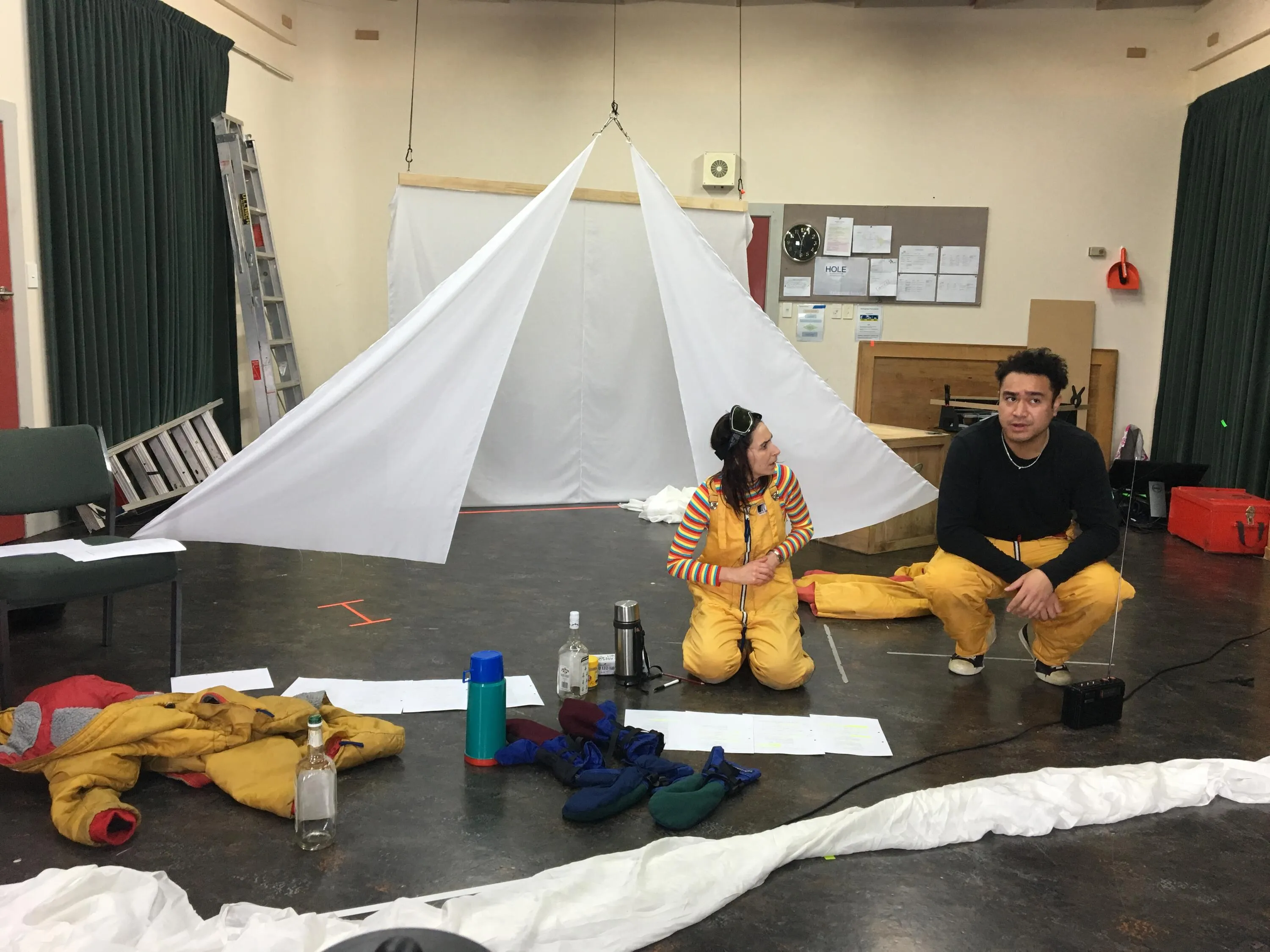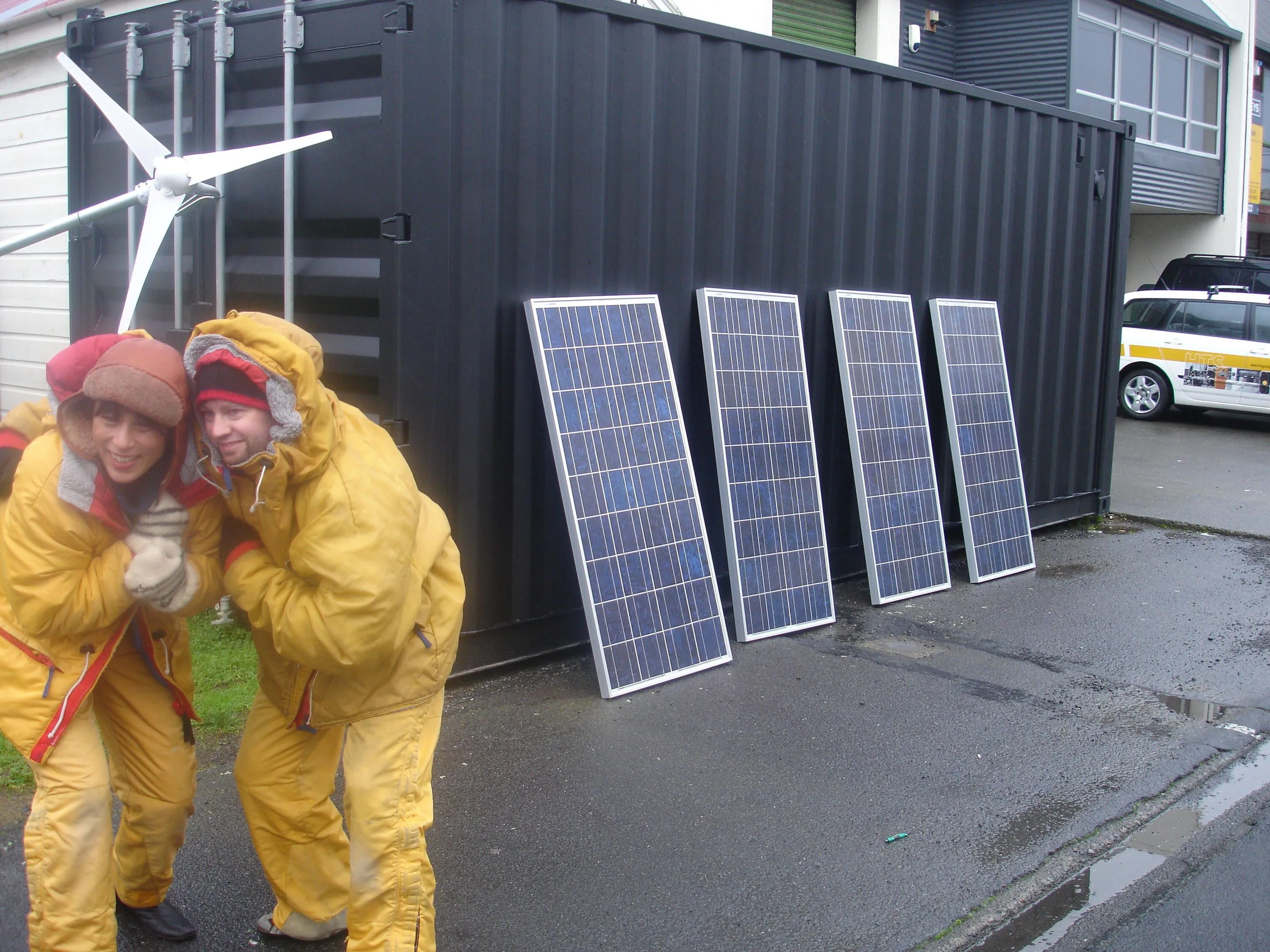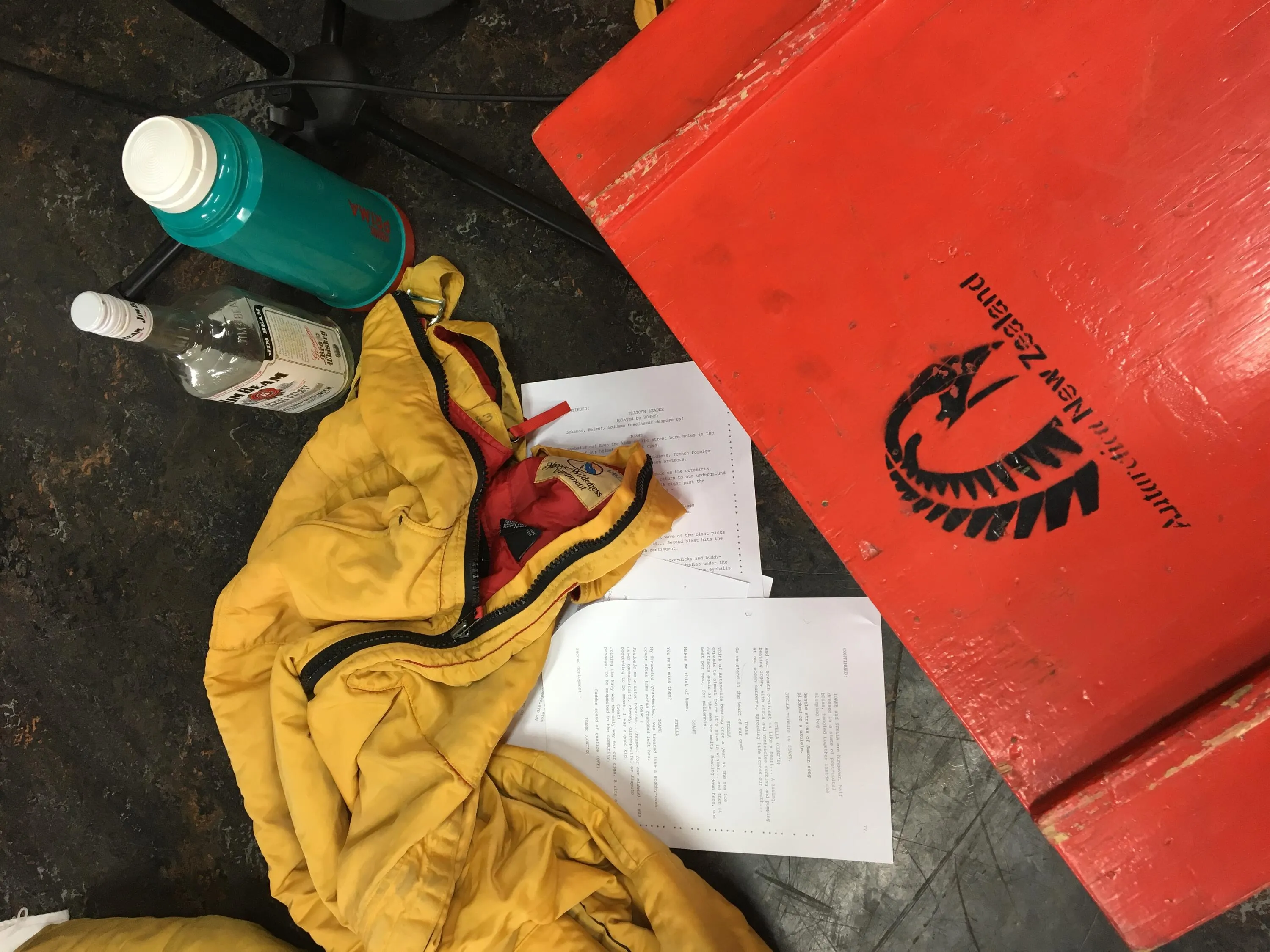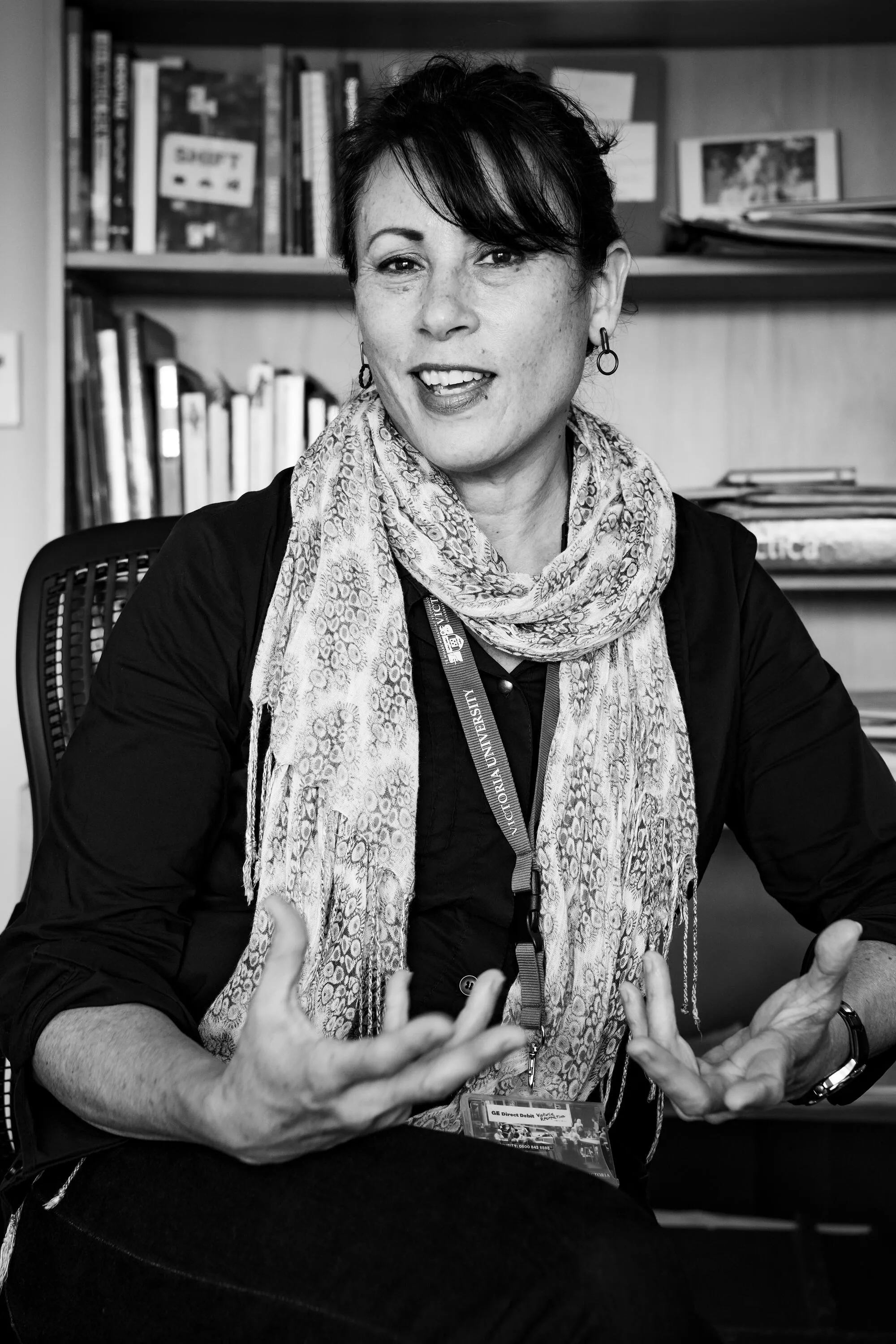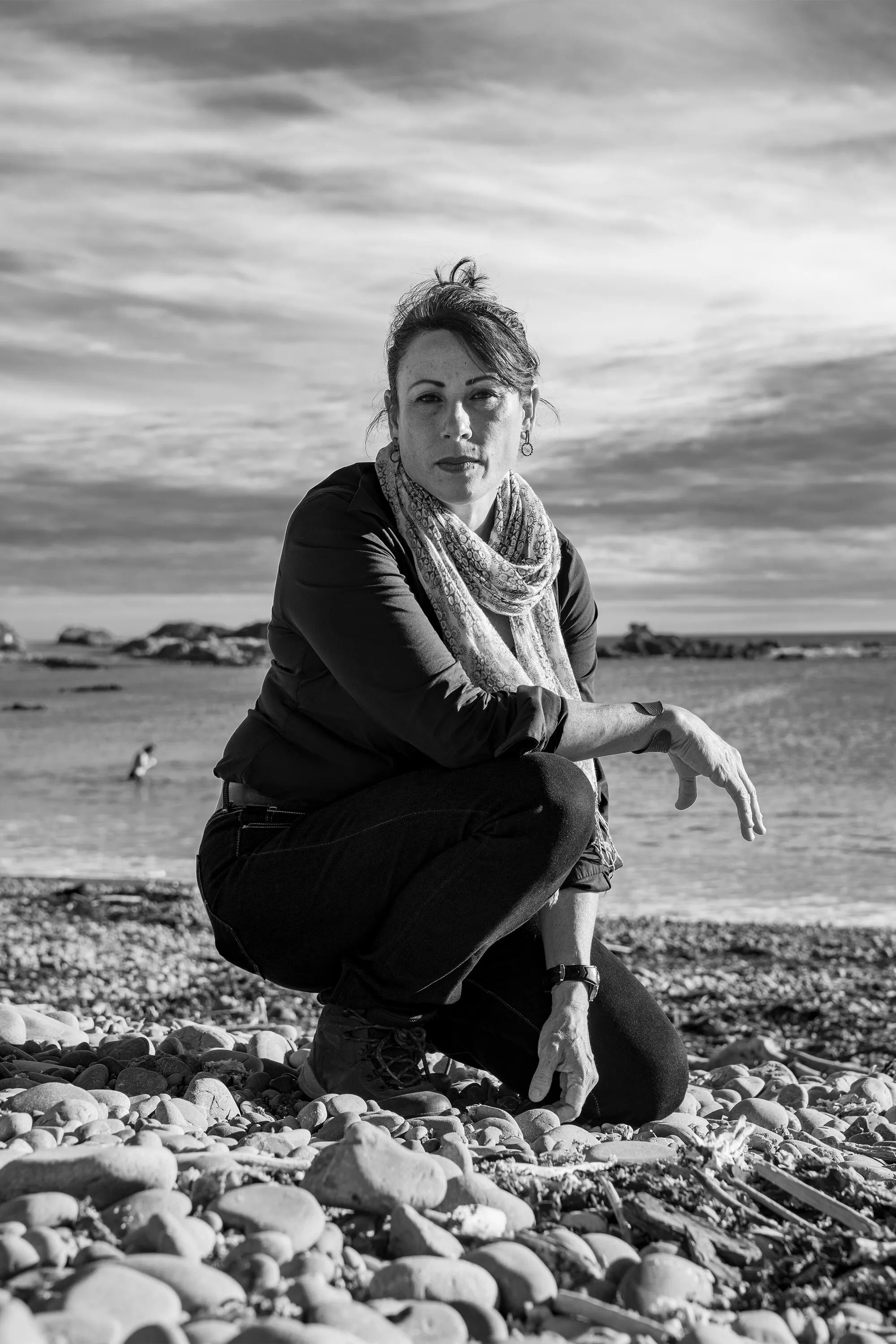Green-Powered Art: Make a Difference
Written by
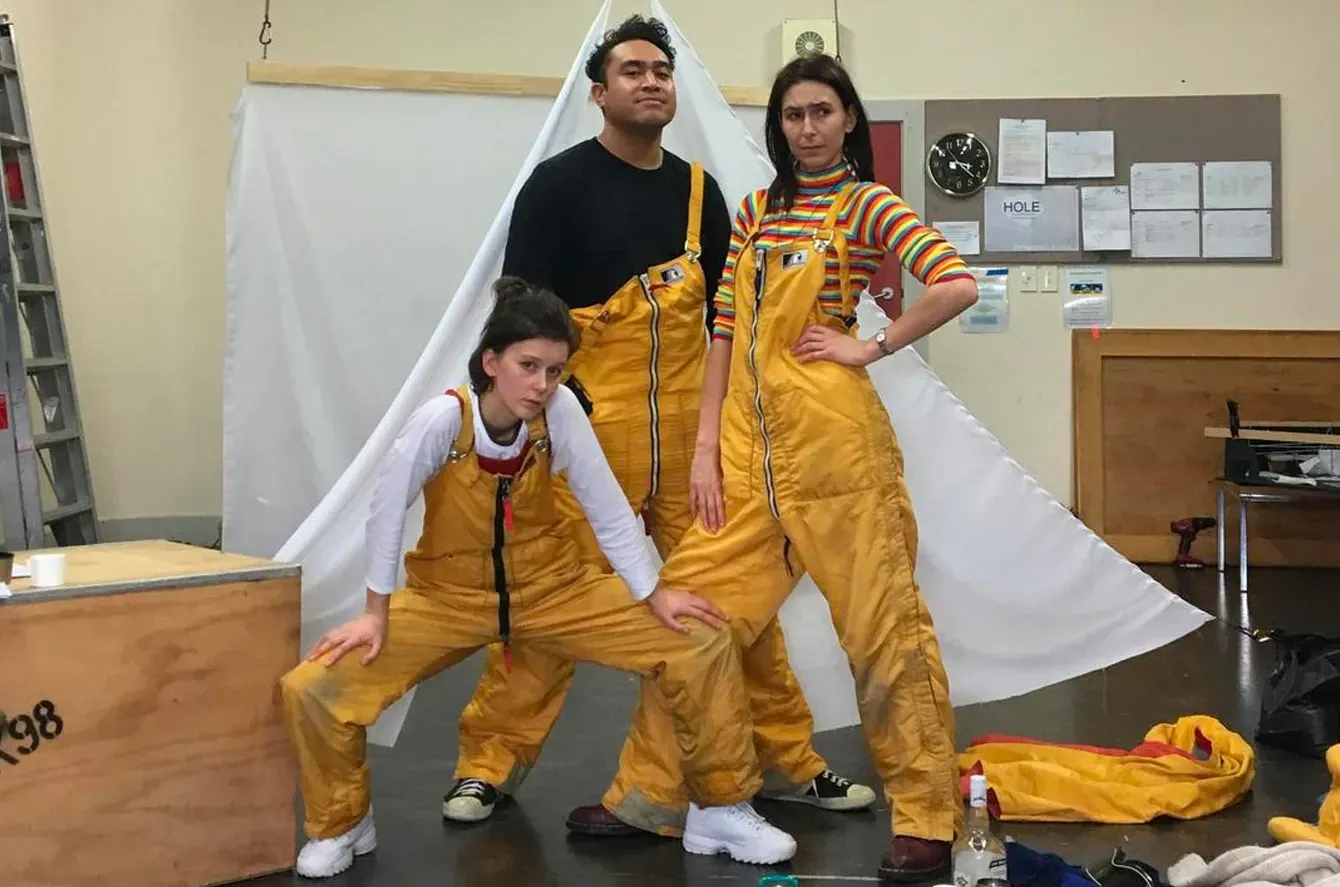
Award-winning playwright Lynda Chanwai-Earle is a woman on a mission. A mission to reduce emission.
“Our role as arts practitioners is to challenge - in order to enable positive socio-economic and environmental change.”
One of the speakers at Wednesday's Track Zero online kōrero about Arts + Climate Innovation, Chanwai-Earle has made this conversation a labour of love for years. She’s set to debut her green-powered development season of HOLE at Wellington’s Circa Theatre later this month.
It’s the second instalment in her groundbreaking Antarctic Trilogy where the kaupapa is to create green-powered theatre, where the production creates and uses its own power, utilising an off-grid system. Chanwai-Earle is enthusiastic and passionate about this, having spent her Residency at the International Institute of Modern Letters last year researching and writing about Antarctica and the discovery of the ozone hole.
She’s had support from women in science to get a wider understanding of this particular climate. This included Hall of Fame atmospheric scientist Susan Solomon, basing a character on real-life Greenpeace activist Dr Maj De Poorter and feedback from acclaimed Antarctic experts that she met through her residency; Dr Rebecca Priestley, Veronika Meduna and Rhian Salmon.
Antarctic exposure
The themes behind the three plays in her Antarctic Theatre Trilogy foreshadow our current climate change issues today. Set in 1985, HOLE is where the world wakes to the discovery of the ozone hole over Antarctica. At that time, it’s been little more than a decade since the US Navy lifted its ban on women travelling to the ice.
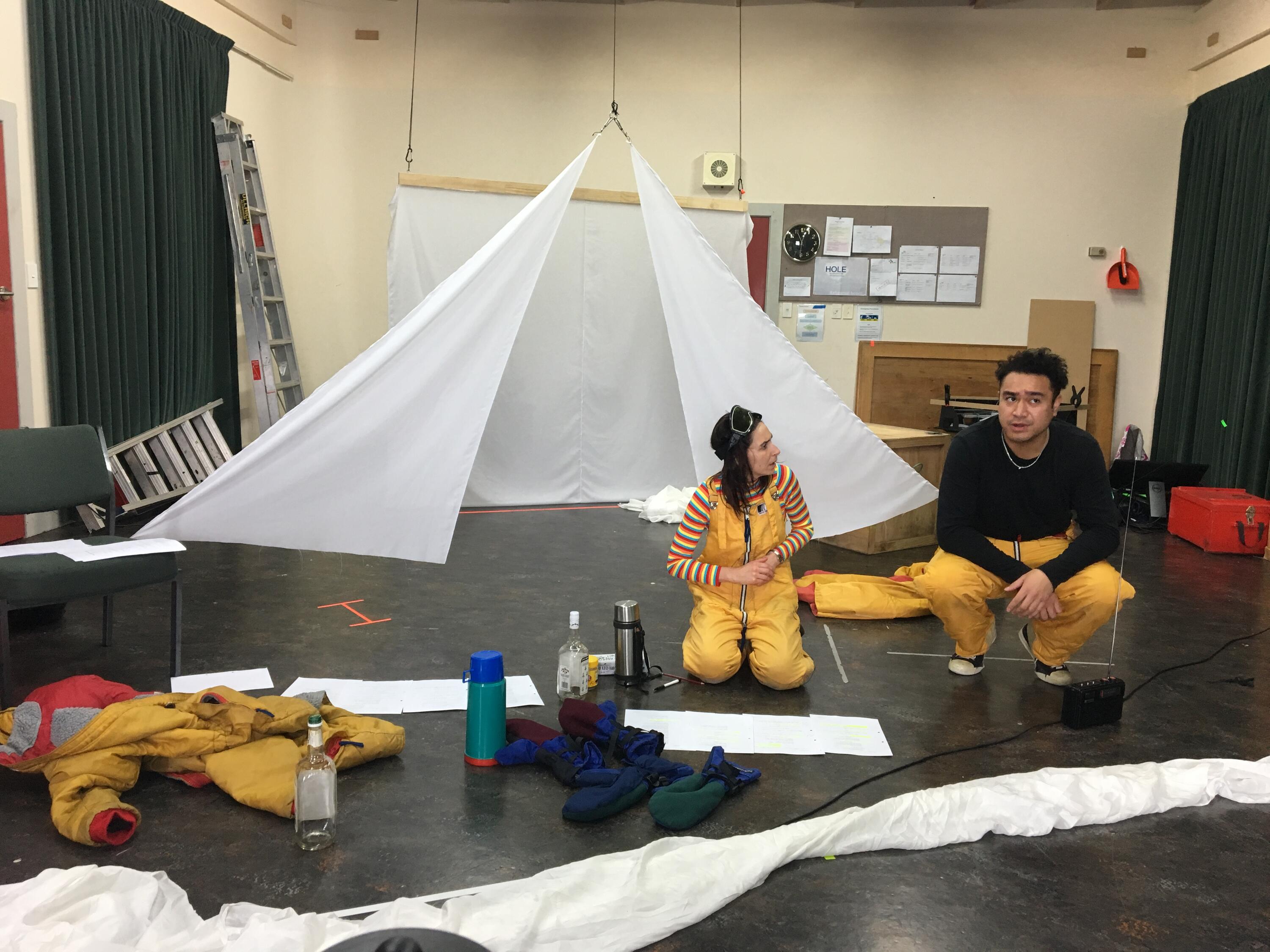
Cast of HOLE, preparing for debut at Circa Theatre. Photo: Sam Tippet.
“I want to reflect human frailty through my characters,” Chanwai-Earle declares. “I’m not a scientist but I want audiences to be moved and to absorb scientific information simultaneously. The role of the arts in influencing climate action can happen when theatre feels like a dangerous and visceral experience. Like the spectacular environment of Antarctica itself, I want the themes within HOLE to be embodied within the ‘ice floes’ of life on which my characters travel, so immersed in their world that our audiences are immersed with them.”
Her commitment to green-powered theatre is also adding authenticity to her production, allowing them to “mimic conditions at Antarctic stations that rely on alternative energy.” They also recycle props and costumes where they can, which include genuine historic articles from organisations like Antarctica New Zealand, the Antarctic Research Centre and NIWA.
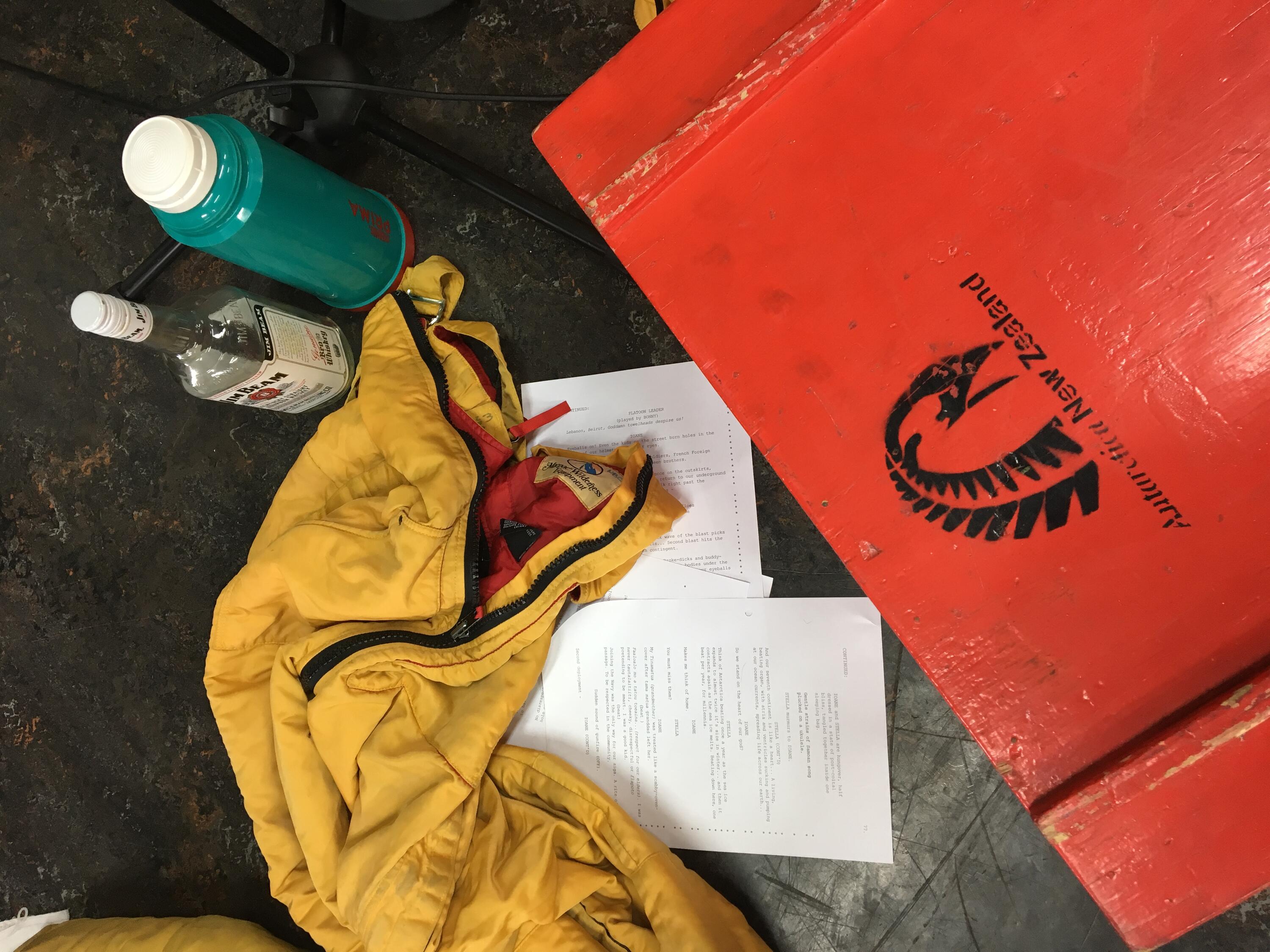
Authentic props from Antarctica help add to the realism of HOLE. Photo: Sam Tippet.
Packing HEAT
In 2010 she teamed up with Marcus McShane, who created New Zealand’s first emission-neutral piece of professional theatre for her show HEAT. This was entirely run off its own wind and solar power system that was set up outside each theatre. McShane is back in his role of Alternative Energy Director for HOLE, with many of the same parts recycled.
McShane says it’s much easier to create an off-grid power system in 2020. “So rather than creating a new system for HOLE, HEAT’s sequel, I’m recycling dated but usable solar and wind components and storage batteries into a new system.” The energy system draws less than one tenth of an average household of power!
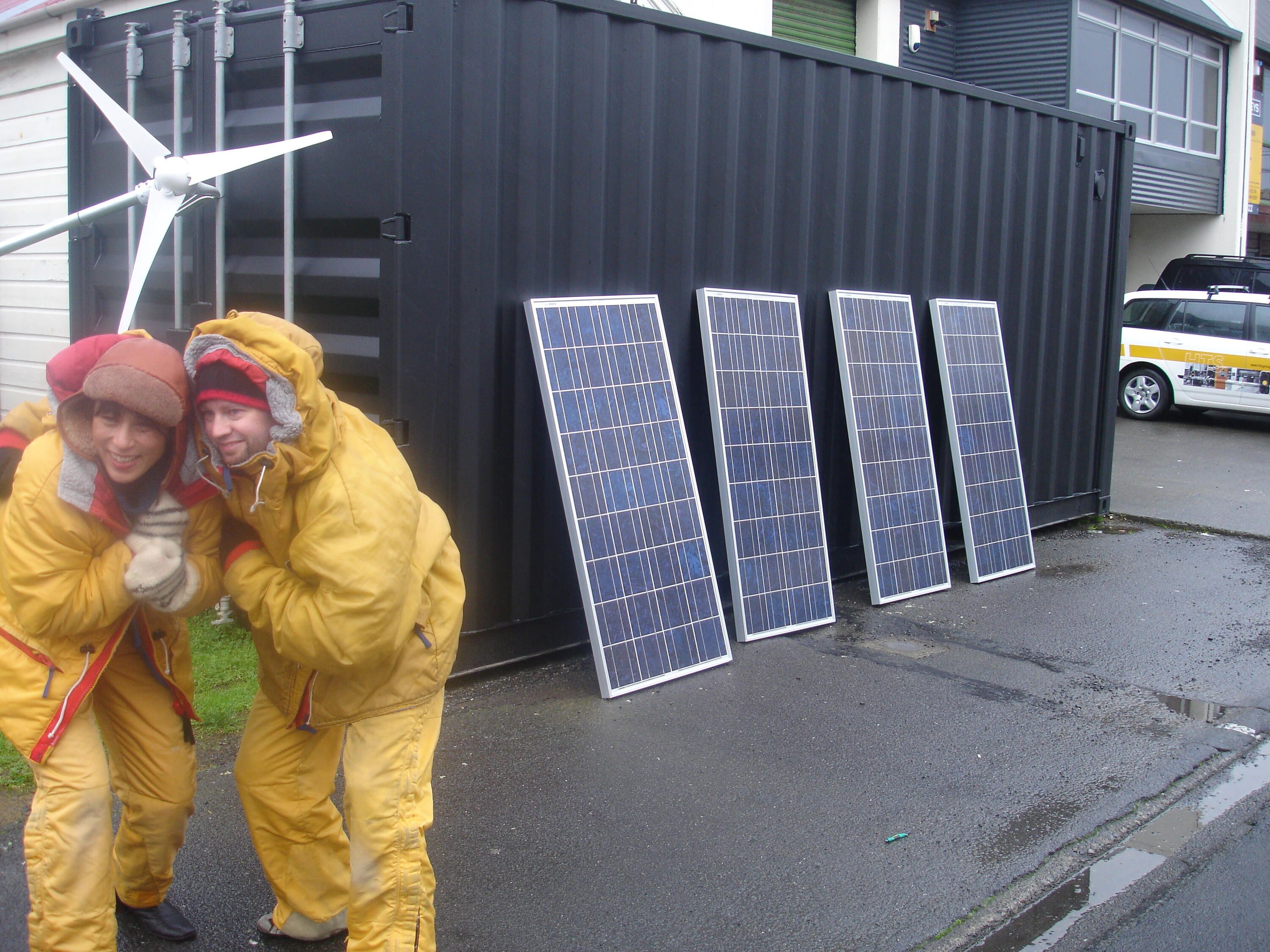
2010 production HEAT used solar panels to power it, a first for Aotearoa.
For each performance, McShane explains that “we’ll take the theatre off the grid and run it for the course of the show from what power we’ve managed to store throughout the day. The lighting and sound designs will have tight power budgets that we’ll have to adjust each day according to the amount of wind and sun we receive.
“The performance will be entirely emission-neutral and by using outdated marine solar and wind systems we’ll be continuing the life of this equipment and keeping it from landfill.” Sounds perfect for Windy Welly!
How to make your art eco-friendly
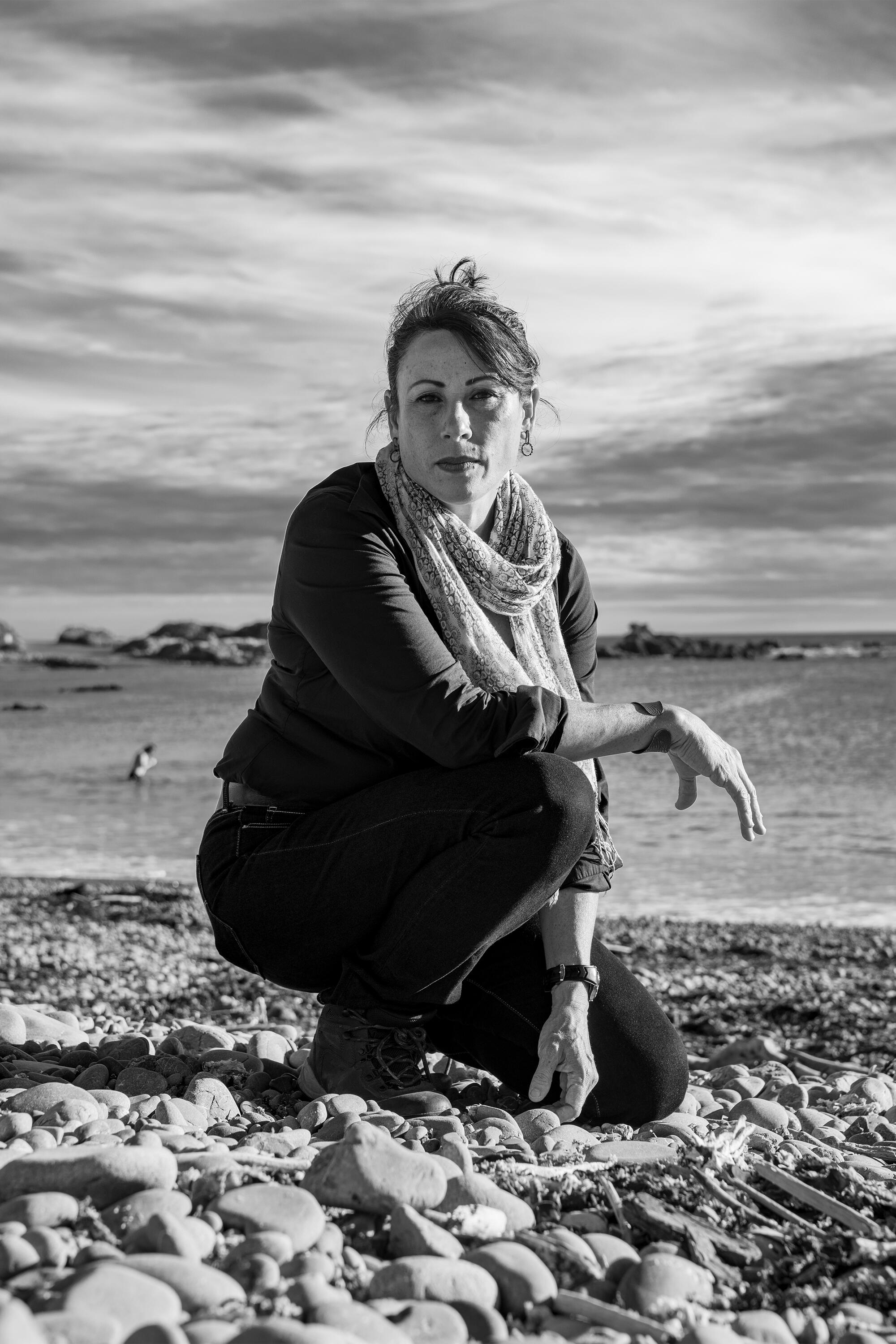
Lynda Chanwai Earle. Photo: Robert Cross.
Chanwai-Earle encourages others to think ‘sustainable’ and ‘renewable’ when it comes to the production and touring of their shows. “Each production is a learning curve for us, we are constantly asking ourselves how we can save on carbon emissions in the process of powering and transporting our plays.” On this note, she is more than willing to share their alternative energy template with any theatre company or theatre venue.
Creating green-powered theatre is a more sustainable approach to the arts, where she and her team are actively looking at how to reduce their carbon footprint.
“Climate change action can’t come about until we all take a hard, uncompromising look at our complicit participation.”
Kōrero is the key
Chanwai-Earle believes that we can’t have positive change and climate action until we unanimously face what needs to be changed.
How do we do this? “By having platforms like Track Zero to encourage exposure and dialogue. The dynamic marriage of science and art can be an influencer to enable change too. The arts are one way to communicate vital and urgent information about climate change.”
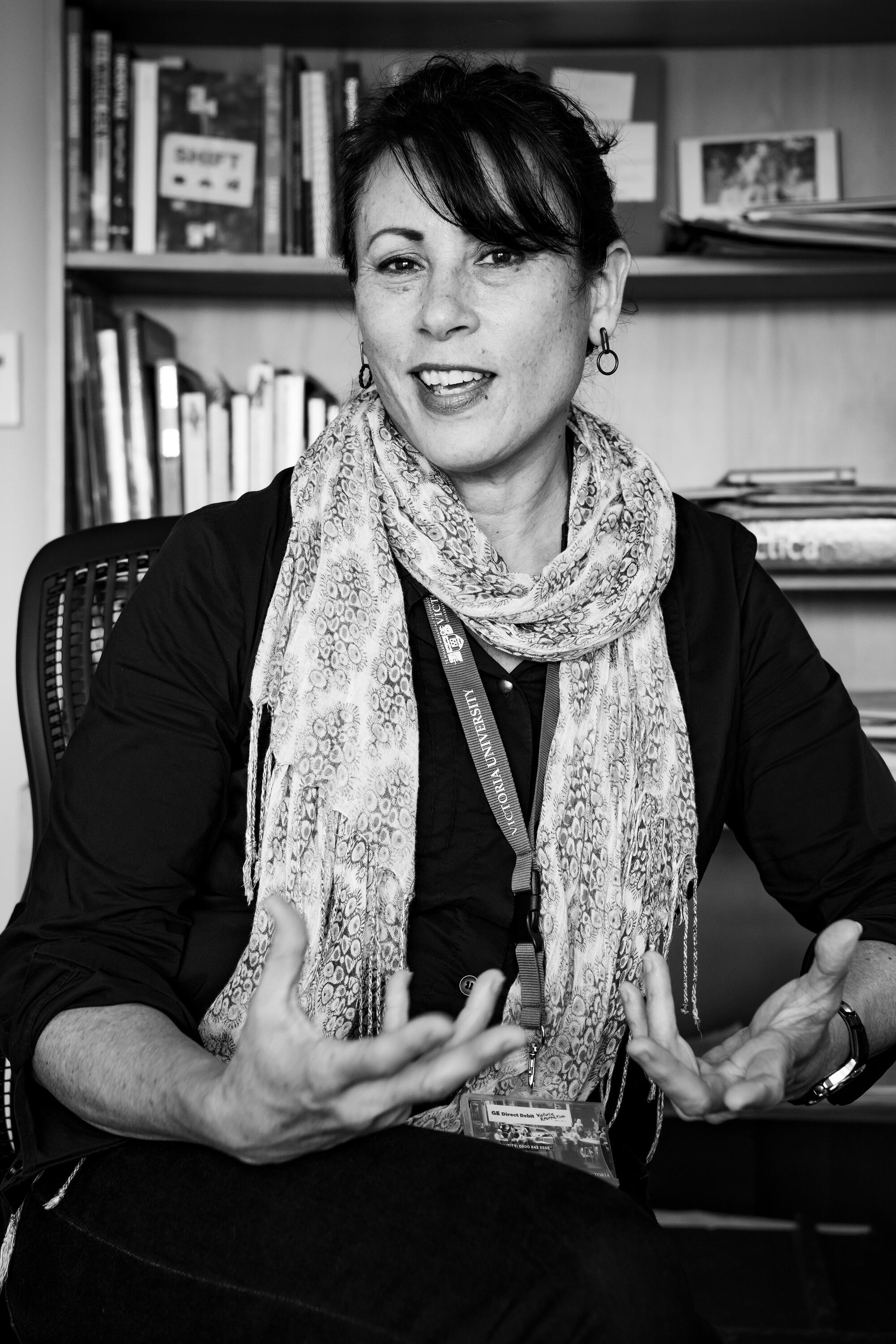
Lynda Chanwai Earle. Photo: Robert Cross.
Global warming is real. And to be blunt, we need to rise to the mantle, we “need to be enabled to proactively seek solutions towards climate change action,” as Chanwai-Earle puts it.
“I love scientist Stephen Broni’s description of Antarctica as the organ of the heart, helping to drive our world’s climate. The annual expansion and retraction of Antarctica’s sea ice is our planet’s heartbeat. We have managed to, in an unforgivable short space of time, completely fuck up our world’s climate.”
Reality check
You can look at this endeavour as coming from a very privileged place, and it is. It’s a bunch of people having the access and time to the resources needed to create green-powered theatre in the midst of a pandemic.
Yet in all that is going on in the world at the moment, HOLE is one of many constant reminders of why art is not only necessary in these times of darkness, but y’know, always.
As I type, the world is slowly dying. With art, we can bring life to our people - and why not at the same time give the world another breath? Or shall I say, keep the heart beating, as is art not our heart, as Antarctica is our Earth’s?
Lynda Chanwai-Earle took part in the Art + Climate Innovation live kōrero - Climate Change or Culture Change? Partnered by Track Zero, PANNZ, Auckland Live, The Big Idea and Royal Society Te Apārangi NZ.
Joining Chanwai-Earle on the panel is musician and Massey University senior lecturer Warren Maxwell, musician Rob Ruha and head of Whiti o Rehua School of Art Massey University Dr Huhana Smith. You can watch the replay at the top of the page, on Facebook live or Youtube live.
